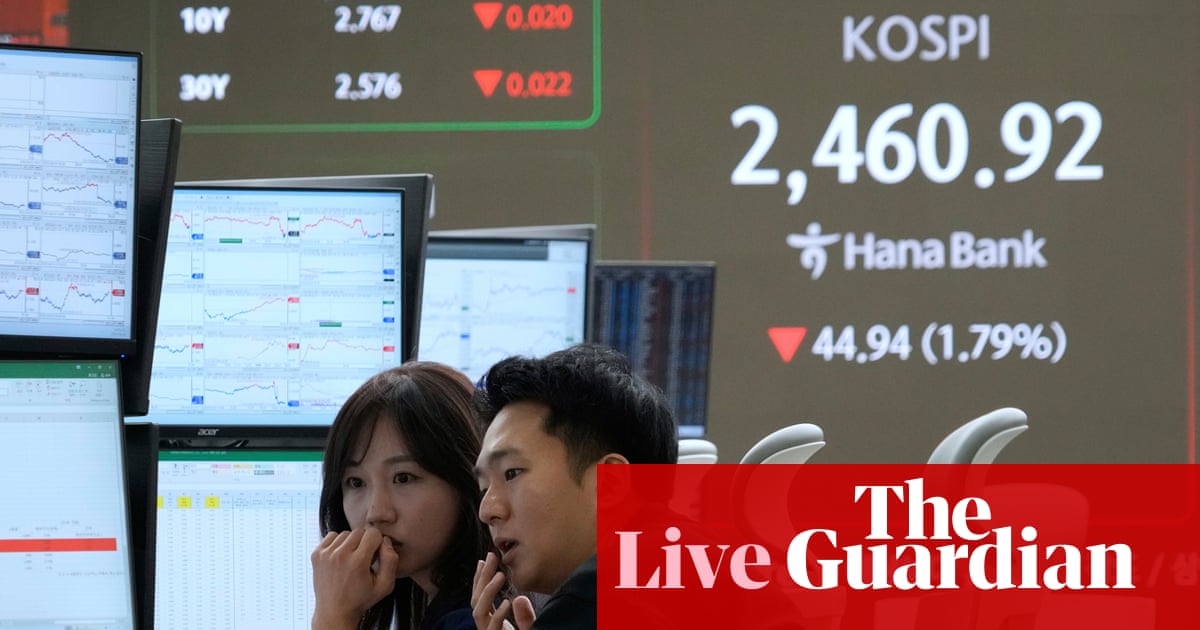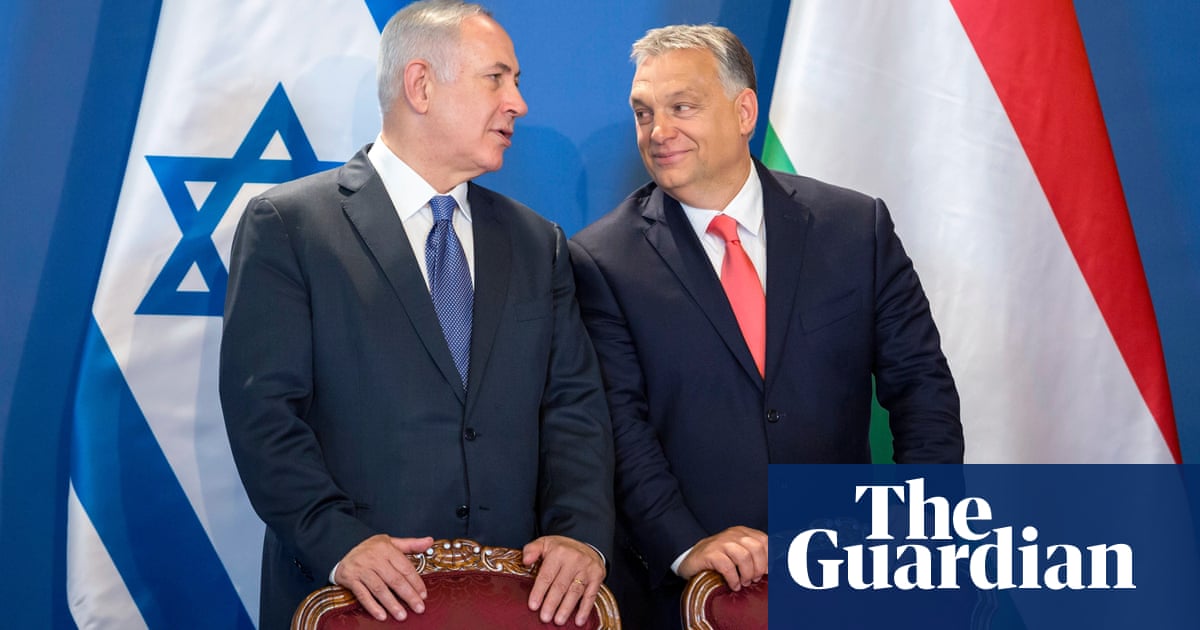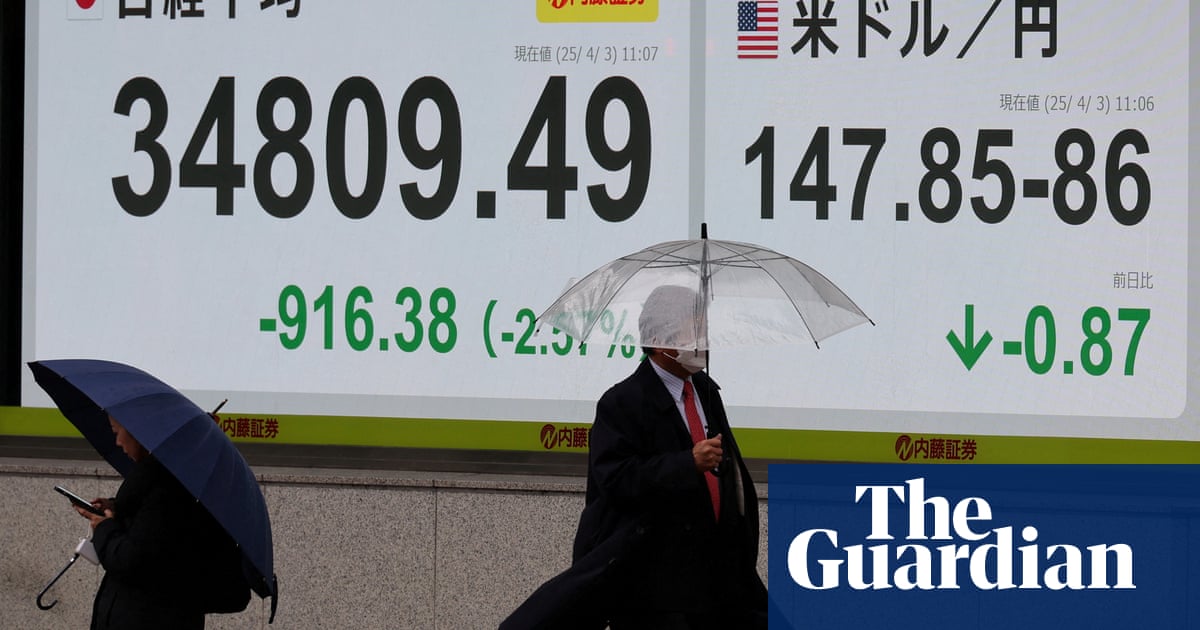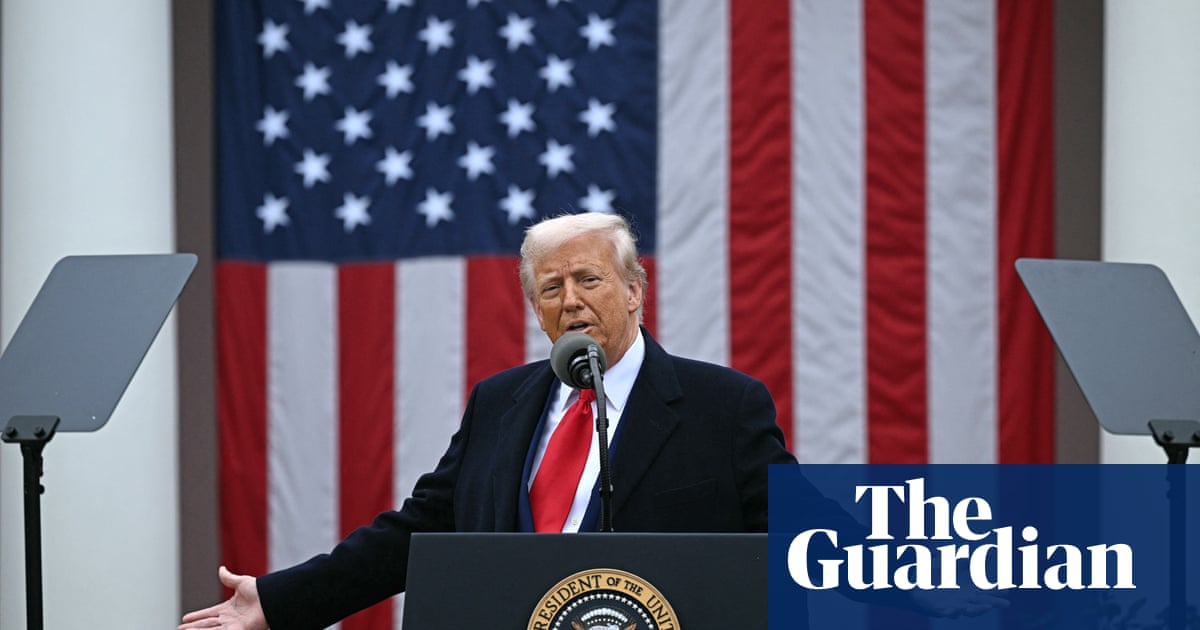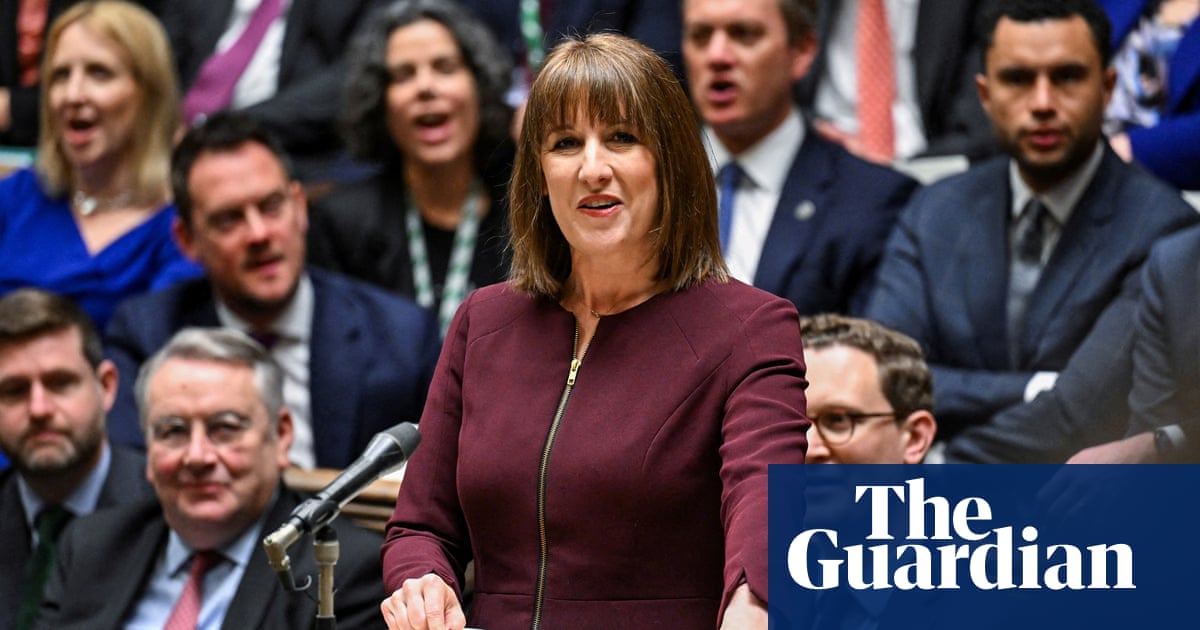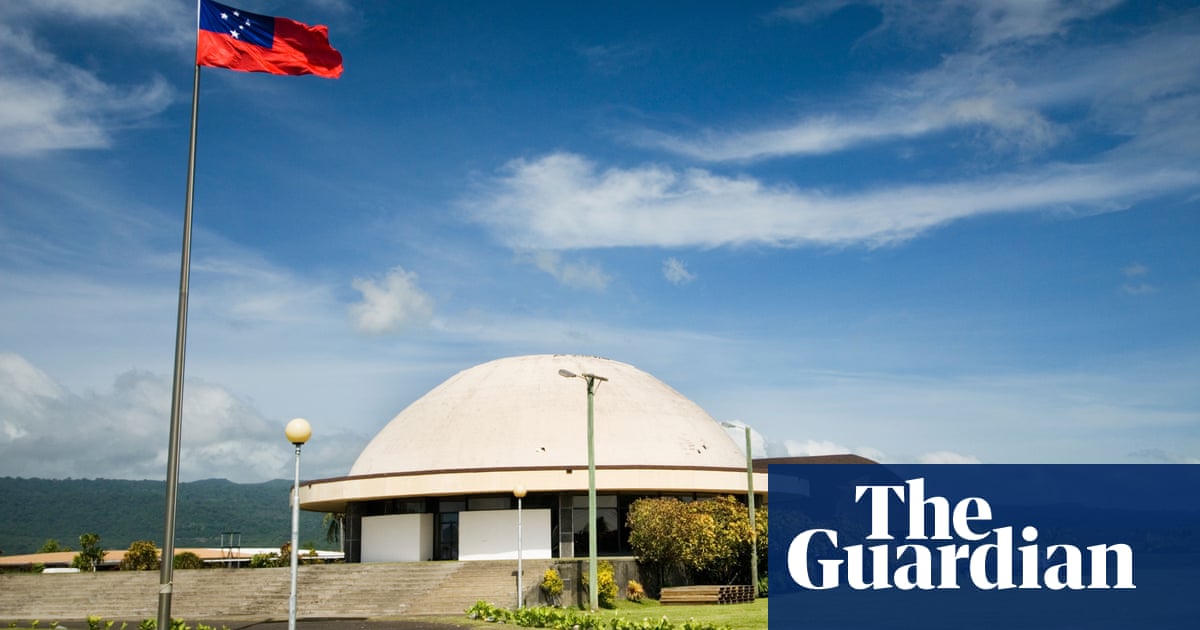On Tuesday China’s military launched joint drills around Taiwan, sending ships, planes and some bizarre propaganda videos across the strait to both warn and punish Taiwan’s government over what Beijing calls “separatist activity”.
The purported provocation was recent assertiveness by Taiwan’s president, Lai Ching-te, who in February designated China a “foreign hostile force” and announced 17 measures to counter its espionage and influence operations.
But it probably had another intended audience: Washington, and specifically defence secretary Pete Hegseth. Hegseth had only just left Asia, where he promised “credible deterrence” efforts by the US against China in the Indo-Pacific.
“The publicity around the exercise likely also has the US in mind – they want to persuade the Trump administration that Lai is a troublemaker and to deter the US from maintaining high levels of support to Taiwan,” said Amanda Hsiao, a director in Eurasia Group’s China practice.
That maintenance has been less than assured since Donald Trump took office for the second time – upending the global order and withdrawing the US from much of its role as a superpower highly involved in geopolitics.
Trump’s public questioning of Taiwan’s worth, his accusations of industrial theft, and his dramatic abandonment of Ukraine had left many on the island wondering if its most important partner might not be so reliable any more.
But recent days have seen the clearest signs yet that, at least for now, the US plans to keep up its support of Taiwan’s freedom.
On Sunday in Tokyo, Hegseth met his Japanese counterpart, Gen Nakatani, and declared the US was “re-establishing deterrence”, (claiming it had waned under Joe Biden – an assessment several analyst told the Guardian they disagreed with).
“America is committed to sustaining robust, ready and credible deterrence in the Indo-Pacific, including across the Taiwan Strait,” Hegseth said.
It followed comments in the Philippines, where he met President Ferdinand Marco, that the two countries should stand “shoulder to shoulder” to deter conflict. China is also engaged in escalating hostilities with the Philippines over disputed territory in the South China Sea.
While Hegseth was still in Asia, the Washington Post reported on a leaked internal Pentagon memo, directing the prioritisation of deterring a Chinese annexation of Taiwan, while pulling back from other regions including the Middle East and Europe, where Russia continues to wage war on Ukraine.
“China is the department’s sole pacing threat, and denial of a Chinese fait accompli seizure of Taiwan – while simultaneously defending the US homeland is the department’s sole pacing scenario,” the memo reportedly said.
Hegseth’s comments and the memo have provided some reassurance in Taiwan.
“[They] give strong assurances to US allies and partners in the Indo-Pacific that the US will continue to be a strong military presence in the region,” said Bethany Allen, head of China investigations and analysis at ASPI, adding that the memo’s “sole pacing scenario” language about Taiwan went beyond previous US statements from any administration.
“What we’re not seeing from this administration compared to previous ones, is the invocation of solidarity among democracies as a reason for US military assurances in the region,” Allen said.
A Taiwanese official told the Guardian that Taiwan was deeply appreciative of Hegseth’s remarks, which the official said remained consistent with longstanding US policy on bolstering Taiwan’s military deterrence capabilities.
The official also said the remarks fit with the existing trajectory of “an increasingly robust US commitment to the region”, and that Taiwan maintains “frequent and very positive” communications with the many different levels of the Trump administration. There are other signs of US support – including a recent visit to Taiwan from the Alaska governor for talks on gas sales, increases in US military training of Taiwanese soldiers, and fast-tracked deliveries of major weapons orders to Taiwan.
Taiwan’s presidential office declined to comment on the reported memo. But publicly and privately the Taiwan government has stressed it has not had concerns about the US’s commitment, even if analysts say Taipei’s actions – which have included delegations sent to Washington, pledges to increase spending, and major new semiconductor deals – have suggested differently.
Rorry Daniels, managing director of the Asia Society Policy Institute, said Taiwan would have to tread carefully “not to be seen as putting the US at risk” of entering a costly war. As president, Lai has taken a more confrontational approach to cross-strait tensions than his predecessor. “Whether the Trump administration sees Taipei’s actions as escalatory matters a great deal in how it would respond to a contingency,” Daniels said.
Analysts said Hegseth’s comments, while a good sign for Taiwan, should still be taken with a grain of salt. Some pointed to widespread warnings that there is some space between what US officials say and do, and what Trump says.
“There’s a concern with the Trump administration that its attention shifts around, and what is promised now may not come through,” said Ja-Ian Chong, a political scientist at the National University of Singapore.
Raymond Kuo, a political scientist at the Rand Corporation, said the comments from Hegseth reflected both a continuation and intensification of the “pivot” to Asia driven by successive administrations, but there were factional considerations.
“The China hawks in the administration generally have not been the main drivers in recent foreign policy discussions, including Greenland, the Panama canal, and Canada.”
Kuo warned that Trump has the final decision-making power and he has proved to be both highly transactional and to hold negative opinions of Taiwan.
There is also a credibility issue. The world has seen how Trump treated Ukraine, and the global recipients of USAid assistance. Hegseth, a former national guard major and Fox News host, is also battling calls for his resignation after he shared sensitive military information to a Signal group that had mistakenly included a journalist. In messages subsequently published from the group, Hegseth accused Europe of being “pathetic” and “freeloading”.
Chong said the Trump team’s treatment of partners raised questions about “how well, willing and able they are to work with allies in the region”.
Beijing is of course watching. There are talks of a meeting between Trump and Xi Jinping being arranged.
“It will be important for Trump to deliver a clear signal of resolve to uphold the status quo when he meets with Xi,” said Ryan Hass, director of the China Center at the Brookings Institute, saying deterrence depends on capabilities and resolve.
“Secretary Hegseth’s comments and reported directives are additive and helpful in this regard, but ultimately, Beijing will take the measure of President Trump.”

 1 day ago
4
1 day ago
4
